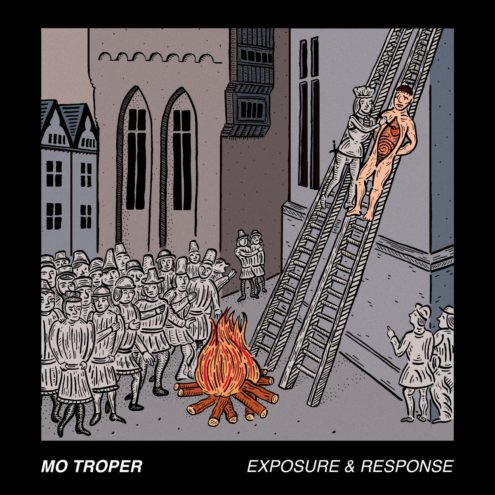“Exposure & Response” by Mo Troper


Rolling Stone used the occasion of Tom Petty’s death to republish an early interview he gave them. The late ’70s were an unusual time in popular music, as tastes varied between disco, southern rock and the insurgent punk scene. As one may expect, Petty was in no hurry to align himself with the punk movement: “All that punk shit was just a little too trendy. Costello’s OK. We played with him, but I couldn’t call him Elvis.” Costello’s early career may have been buoyed by punk, but he wasn’t a proper punk himself. That Costello could move in punk circles seems obvious now that the genre has expanded so drastically, but the mood in 1978 was that punk was distinctly anti-musical—or at the very least, anti-melodic. So an artist like Costello, who blended the in-your-face provocation and lyrical bite of punk, could only pass as punk for so long. The Attractions played with the immediacy of punk, but even then Costello’s songcraft was simply too refined to be defined by the movement.
Mo Troper’s new album, Exposure & Response, strikes a very similar chord. As power-pop goes, it’s smart and fun. Like early Costello, there’s an immediacy and sneer to the vocal delivery, which suits the songs well. The album opens with “Rock and Roll will Change the World,” featuring Troper’s harmonies and thundering guitar. Both draw similarities to the kind of polished, “important” musical artifice his lyrics skewer, a point reinforced by the set’s most accessible track “Your Brand.” The lyrics savage the social media mentality, while chugging guitars recall Weezer at their most melodic. “The Poet Laureate of Neverland” uses a slightly off-kilter brass arrangement to embroider the lyrical dressing down of a self-important artist-type. As the music swells to the song’s end, Troper manages to both have his cake and eat it—it’s an almost elegant thing, hinting at Beatle-esque pomp while burning someone for their bluster.
The record grows on you with repeat listens, but it’s clear from the get-go that Mo Troper walks the tightrope between punk and power-pop. These are songs with incisive lyrics and memorable, melodic music played with urgency. The wild card here is Troper’s vocals, about which your mileage may vary. They’re very much in the same vein as those of Elvis Costello or Billie Joe Armstrong: unpolished maybe, but distinctive, emotive, passionate and very appropriate for the songs.




